This is an edited version of Maryam Namazie’s contribution to a Cambridge Union debate: ‘This House Believes Feminism is Incompatible with Religion’, held on 14 November 2024. Others speaking in Proposition: Phyllis Zagano, Annie Laurie Gaylor, and Pollyanna Greene Wright. Those speaking in Opposition: The Rt Revd Rose Hudson-Wilkin, Rabbi Charley Baginsky, Peter Hitchens, and Lindsay Hansen Park. The debate can be viewed here.
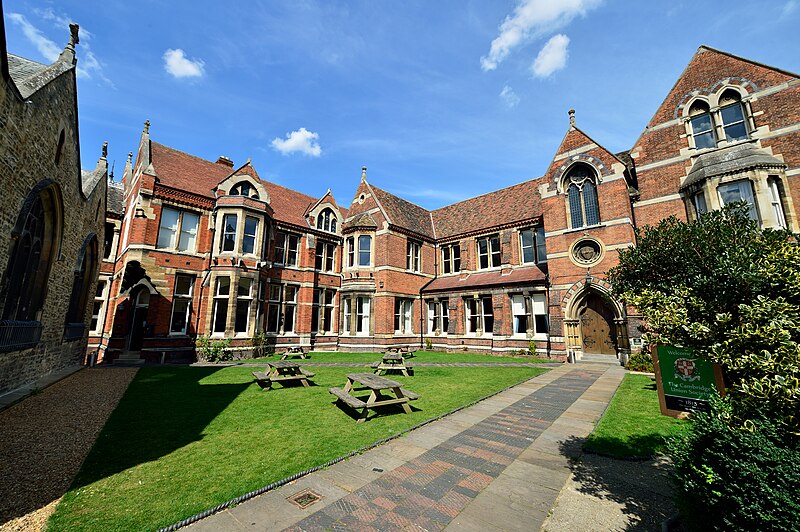
ExecElect. CC BY-SA 4.0.
Religion and feminism are incompatible. What I mean by religion is organised religion and not personal belief. People are very often born into a religion due to a lottery of birth and they mostly pick and choose and adapt it to 21st century lives. It is possible, therefore, for a believer to be a defender of women’s rights or a secularist. When talking about the incompatibility of religion and feminism, I am talking about organised religion—religious thought and tenets and their dire consequences for women’s freedom, rights, and equality.
In religions, women are seen to be subservient to men; in fact, the woman is a deviant form of man. Men and women are unequal—‘complementary’ is the euphemism. Religion is built on and reproduces discrimination and violence against women. Inequality is inherent to religions and their institutions. Feminism, on the other hand, sees women and men as equals and strives for an end to discrimination and inequality. This is the crux of the incompatibility.
The fact that we all know many great religious people, like my parents, doesn’t make religions good. That you become less ‘selfish’ when you turn to religion, or that you want more women in leadership roles in patriarchal institutions, does not make religions good. This line of non-reasoning is only ever deemed acceptable because religion has a privileged position, beyond human accountability.
Let’s not even look at what the Islamists, Christian Right, Jewish Right, Hindutva, Sikh Right, and Buddhist Right are doing across the globe. Right here in Britain, institutionalised religions can organise religious courts like Sharia and Sikh Courts and Beth Din that violate women’s rights. They can do what they want in faith schools, enforce veiling and religious symbols on small children, cover up sexual abuse of children for decades on end, intimidate and threaten people for cartoons and articles, mutilate children with circumcision and female genital mutilation, preach hatred against women, ex-Muslims, apostates, gay people… And that’s just these past few weeks, and still they are mostly free to do as they please.
The Syrian philosopher Sadik Jalal Al-Azm rightly asks, in his book Critique of Religious Thought, ‘Why do we give the matter of religion this privilege and distinction so that we exempt it from the comprehensive ethical principle that guides the formation of beliefs and their contents?’ Religion is an idea like any other, and it’s a bad one at that. If women’s rights are your concern, then feminism is a much better idea.
Apologists will say, ‘Women are revered in religions’. They might cite Muhammad, Islam’s prophet, as saying, ‘Heaven [or Paradise] is beneath [a mother’s] feet’ (hadith 3104, Sunan an-Nasa’i), or they might refer to Mary as the model of the Catholic Church. This is only because women are valued if they play their roles within and defined by religion. Otherwise, it’s all witch burnings, sex apartheid, compulsory hijabs and, stonings.
No matter what evidence you bring, there is always an excuse for religion. Religion is timeless and perfect—until it isn’t. Then it’s all about grounding it in context. Equality, didn’t you know, needs to be ‘contextualised’.
Take Sura An-Nisa in the Quran 4:34, where it says: ‘As for women of whom you fear rebellion, admonish them, and remain apart from them in beds, and beat them’. Supposedly, the context is that women were beaten so badly at the time that this was a huge improvement. But couldn’t Allah have just outright banned domestic violence, or for that matter slavery, like he banned alcohol?
And of course, if context doesn’t work for the apologists, then they will always fall back on the matter of interpretation. Apparently, you can positively interpret the Orthodox Jewish prayer, ‘Blessed are you, Lord, our God, ruler [of] the universe who has not created me a woman.’ It seems you can positively interpret Muhammad’s statement that ‘I was shown the Hell-fire and that the majority of its dwellers were women who were ungrateful’ (hadith 29, Sahih al-Bukhari). And Martin Luther’s decree: ‘If a woman grows weary and at last dead from [child]bearing, that matters not; let her only die from bearing, she is there to do it.’ But at least they must have been unselfish, ergo, religion is good.
A great example of this chicanery comes in the form of the Islamic ‘feminists’. Their interpretation of the verse in the Quran that defends domestic violence is that men are not obliged to beat their wives, and when they do, they must not leave marks. How thoughtful.
It is important to point out that feminism is imperfect, the result of the ongoing human struggle for freedom and equality. It has made lives better for women and girls across the globe and continues to strive to do so. Religion is deemed divine and perfect, not to be questioned or challenged. To doubt is nothing less than apostasy and heresy. And it has made the lives of countless women and girls a living hell. It is the greatest male supremacist project ever encountered in human history.
The fact that reformers in all religions are marginalised and persecuted is further evidence that they go against the tenets of religions. Otherwise, you would not need Liberal Judaism or Catholics for Choice, which isn’t even linked to the Church; you wouldn’t have the female imam in a liberal mosque in Germany under police protection. Organised religion does not tolerate feminism or women’s rights. No amount of deception can make religion feminist. They are antithetical to each other. The more religion has an influence in public life, in the state, law, and the educational system, the more inequality and discrimination there is.
In fact, any gain made for women’s rights and humanity has come about by confronting organised religion. As Annie Laurie Gaylor, Co-President of the Freedom From Religion Foundation, said:
Every freedom won by women, from wearing bloomers to riding bicycles to not having to wear headscarves in some churches, to being permitted to attend universities and enter professions, to vote, to own property, was opposed by the churches. The Bible and other so-called “holy books” continue to be hurled at women seeking freedom…
Sheikh Assim Al-Hakeem, who has over a million subscribers on YouTube, explains the incompatibility of Islam with feminism clearly. He says that feminists would ask
Why does a daughter inherit half the son’s wealth when the father dies… Why is the blood money when a [woman’s] murder takes place…half of a male’s blood money? Why doesn’t she lead the prayer, give sermons, why can’t she be a ruler, why can’t she be a judge, why can’t she mix with men? … Anyone calling for such things may risk getting out of the fold of Islam. When it comes to equality, Allah says in the Quran…[that] male is not like a female, so there’s no equality and whenever women want equality then…they should oppose a man marrying more than one wife, which is mentioned in the Quran, in the sunnah. That would be totally blasphemous… Therefore…feminism is totally against Islam…
He also states that feminism ‘demands equality, so they would come to Islam and scrap out half of it…’ Actually, in the Woman’s Quran published by the Council of Ex-Muslims of Britain, we have scrapped all of it, hence why it is blank.
Organised religion is incompatible with, antithetical to, and the greatest obstacle to feminism and women’s rights and equality. As US suffragette Elizabeth Cady Stanton once said: ‘You may go over the world and you will find that every form of religion which has breathed upon this earth has degraded woman…’
Gods and religions are Great—for patriarchs and misogynists and those happy to be confined within the roles religions provide. For those of us wanting freedom, women’s rights and equality, there is always feminism.
Related reading
From the streets to social change: examining the evolution of Pakistan’s Aurat March, by Tehreem Azeem
White Christian Nationalism is rising in America. Separation of church and state is the antidote. By Rachel Laser
The ‘Women’s Revolution’: from two activists in Iran, by Rastine Mortad and Sadaf Sepiddasht
Confronting identity politics, a breeding ground for division and dehumanisation, by Maryam Namazie
The rise and fall of god(s) in Indian politics: Modi’s setback, Indic philosophy, and the freethought paradox, by Kunwar Khuldune Shahid
Campaign ‘to unite India and save its secular soul’, by Puja Bhattacharjee
Religion and the decline of freethought in South Asia, by Kunwar Khuldune Shahid
‘We need to move from identity politics to a politics of solidarity’ – interview with Pragna Patel, by Emma Park
Keir Starmer must bring the UK’s diverse but divided people together, by Megan Manson
Secularism is a feminist issue, by Megan Manson
Faith and charity law: time for a rethink, by Megan Manson
The Taliban’s unceasing war on Afghan women, by Khadija Khan
A Small Light: Acts of Resistance in Afghanistan, by Zwan Mahmod
The hijab is the wrong symbol to represent women, by Khadija Khan
Child protection and religious freedom, by Richard Scorer
The Pope’s Apology, by Ray Argyle
‘The best way to combat bad speech is with good speech’ – interview with Maryam Namazie, by Emma Park


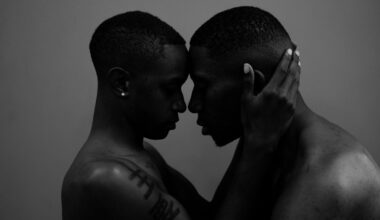

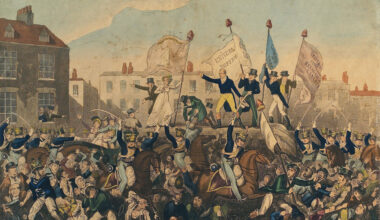

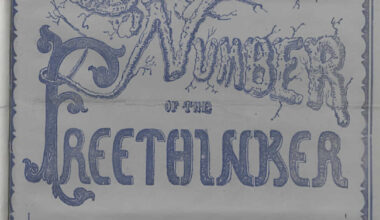
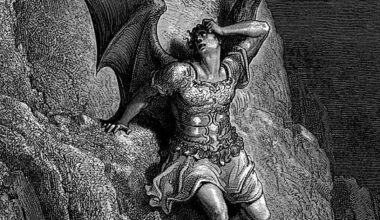
1 comment
Amazingly written! I’m currently writing my dissertation on the effects of religion and gender, what I just read was inspiring. Keep writing and one day people will want to be free from these archaic institutions.
Your email address will not be published. Comments are subject to our Community Guidelines. Required fields are marked *
Donate